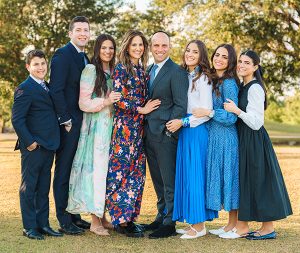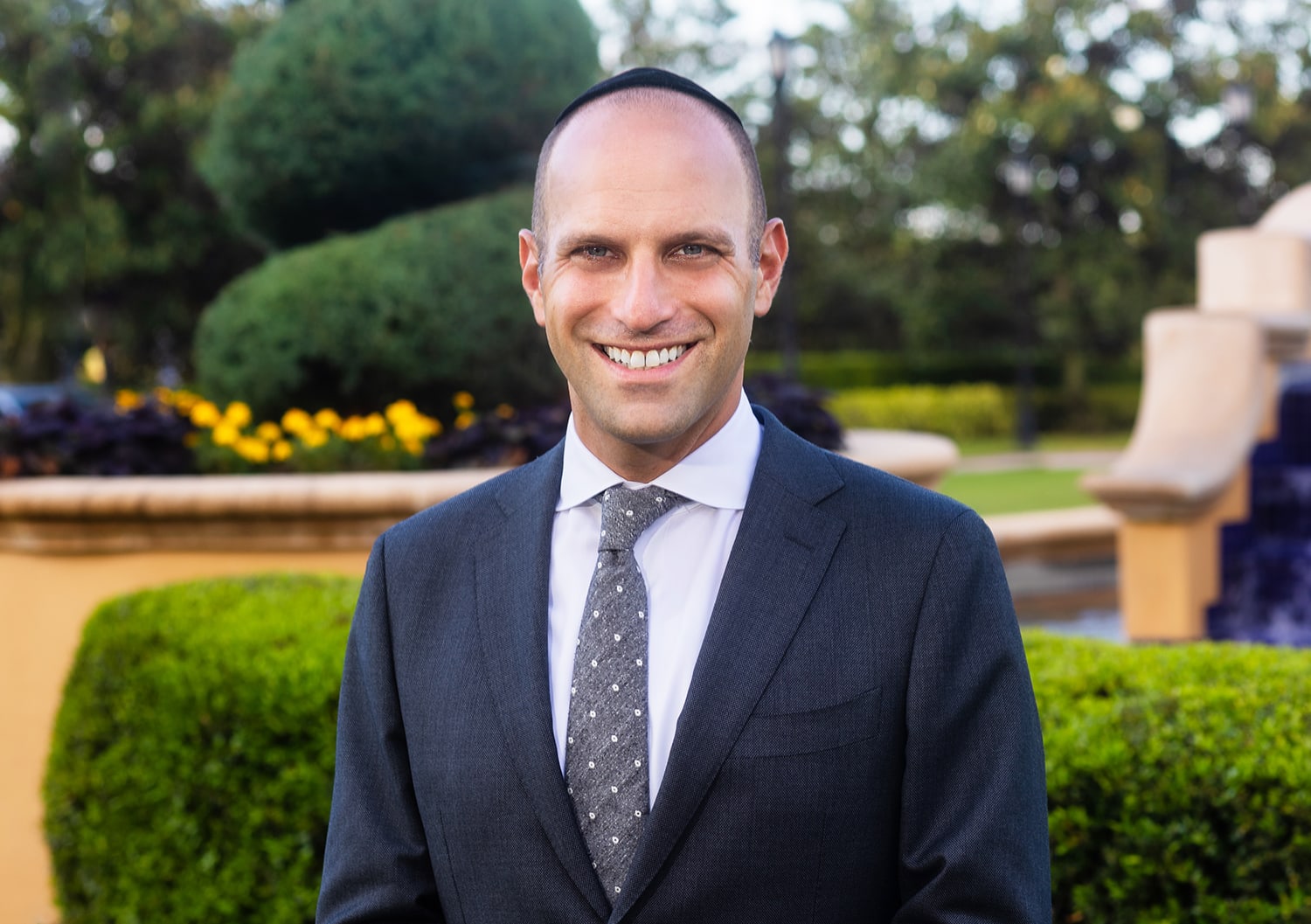Yitzie Pretter’s personal mantra is, “We’ll have plenty of time to rest after 120.”
In the interim, he intends to live life to the fullest and do as much chesed and klal work as possible, including at the OU, where he chairs its Advocacy Center and sits on the general OU Board of Governors.
“I have always admired the OU and the broad reach it has for the Orthodox community in so many facets of life,” he says. “I think it is the single most impactful Jewish organization.”
A resident of Baltimore, MD, Yitzie grew up in Staten Island, NY, and attended JEC (Jewish Educational Center) high school in Elizabeth, New Jersey. Raised in a home where his parents, Chaim, a”h, and Simie, were always “doing for others”, Yitzie was imbued with the values of chesed and community from an early age.
“My father was very involved in our shul, Agudah of Staten Island,” he says. “He ran the father and son learning program there and it grew into a community-wide initiative, now known as the Chaim Ozer Father and Son Learning Program. My mother was always doing chesed for others and continues to do so to this day. There is a frum woman who has been at Staten Island’s South Beach Psychiatric Center for years. My mother visits her weekly to give her chizuk; few people visit her. She also visits other sick community members weekly.”
Communal leaders also inspire Yitzie. At Ner Yisroel, where he earned a Bachelor of Talmudic Law, Yitzie learned more about communal achrayus (responsibility) and was moved by Rabbi Herman Neuberger’s devotion to the klal. Additionally, Yitzie cites OU Executive Vice President Rabbi Moshe Hauer as a venerable role model.
“I belong to Bnai Jacob Shaarei Zion shul in Baltimore where Rabbi Hauer served for 26 years and continues to be a part of the shul as rabbi emeritus,” he says. “Rabbi Hauer has had the most significant impact on my involvement in the klal by encouraging me to get involved in communal matters and providing the lens with which to view issues with nuance. I continue to seek his guidance on hashkafik (ideological) matters. When there is a difficult communal issue regarding how we should act or respond, I look to him for guidance.”

Yitzie holds a MBA from Johns Hopkins University, which he parlayed into a career as principal of Mosaic Realty Partners, a commercial real estate company. Together with Nancy, his wife of 22 years, they are the proud parents of five children ranging in age from 13 to 21.
The couple dedicate themselves to multiple organizations: Nancy serves on the boards of Baltimore’s Levindale Hospital, Bas Melech Performing Arts, and Jewish Caring Network, a nonprofit that supports families facing serious illnesses. Yitzie is Bnai Jacob Shaarei Zion’s treasurer, and serves on the boards of American Friends of Magen David Adom (where he chairs the Audit Committee), The Associated: Jewish Federation of Baltimore, and some of its agencies, as well as two local Jewish schools. He also volunteers with organizations that help teens at risk and families facing lifelong illness, and has been involved with AIPAC and JFNA for many years.
Yitzie acknowledges that it’s not easy balancing multiple commitments, but sees volunteerism as a moral imperative – one that he and Nancy hope to impart to their children.
“It’s always difficult to juggle work, family and other responsibilities,” he says. “Although we need to take care of ourselves, I have learned that our purpose in this world is to serve Hashem and to do for others. As I started to get involved in various organizations, I realized that there is a serious need for volunteers and lay leaders in the Orthodox community. My wife Nancy has been very supportive of my involvement and it wouldn’t be possible to do what I do without her encouragement. We hope that our children will see what we do and choose to get involved in causes they are passionate about.”
Yitzie holds a special place in his heart for the OU, where he has served on the Advocacy Center’s board for the past six years and is now the commission chair. He has also been a member of OU’s Board of Governors for the past 18 months.
“As I am most involved in OU Advocacy, when we see our efforts come to fruition around initiatives that directly help our community – like the Nonprofit Security Grant Program which helps to secure our communal institutions – it is very gratifying,” he says. “I was very pleased with our mission to D.C. in January, which was attended by over 100 lay leaders from around the U.S. Leading senators and representatives from both sides of the aisle addressed us.”
Yitzie also appreciates the tremendous respect accorded to OU Advocacy Center Executive Director Nathan Diament on Capitol Hill.
“He has led OUA for 27 years and has deep and meaningful relationships throughout Washington which have benefited our community immensely,” Yitzie observes. “It’s a pleasure to work with him.”
Yitzie is proud of the OU’s success in recent years in expanding and broadening its reach.
Still, he says, most people largely associate the organization with its tremendous kashrus initiatives, while the OU is also profoundly impactful in myriad other ways.
“I think we still have work to do in terms of educating various segments of the Orthodox community about what we do, and how we can help everyone,” Yitzie says.
And he is totally on board to help make that happen.
The words of this author reflect his/her own opinions and do not necessarily represent the official position of the Orthodox Union.

